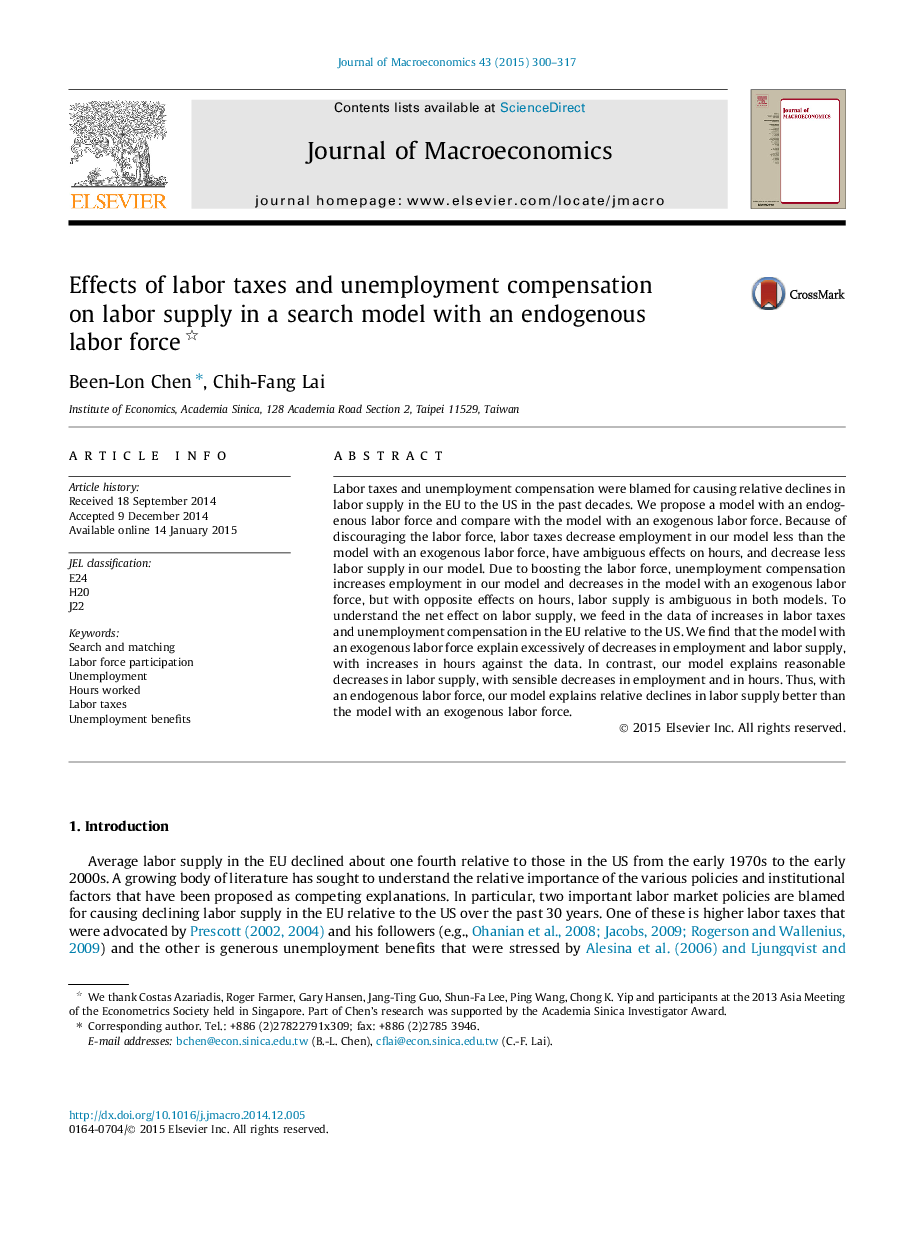| Article ID | Journal | Published Year | Pages | File Type |
|---|---|---|---|---|
| 965317 | Journal of Macroeconomics | 2015 | 18 Pages |
Abstract
Labor taxes and unemployment compensation were blamed for causing relative declines in labor supply in the EU to the US in the past decades. We propose a model with an endogenous labor force and compare with the model with an exogenous labor force. Because of discouraging the labor force, labor taxes decrease employment in our model less than the model with an exogenous labor force, have ambiguous effects on hours, and decrease less labor supply in our model. Due to boosting the labor force, unemployment compensation increases employment in our model and decreases in the model with an exogenous labor force, but with opposite effects on hours, labor supply is ambiguous in both models. To understand the net effect on labor supply, we feed in the data of increases in labor taxes and unemployment compensation in the EU relative to the US. We find that the model with an exogenous labor force explain excessively of decreases in employment and labor supply, with increases in hours against the data. In contrast, our model explains reasonable decreases in labor supply, with sensible decreases in employment and in hours. Thus, with an endogenous labor force, our model explains relative declines in labor supply better than the model with an exogenous labor force.
Keywords
Related Topics
Social Sciences and Humanities
Economics, Econometrics and Finance
Economics and Econometrics
Authors
Been-Lon Chen, Chih-Fang Lai,
